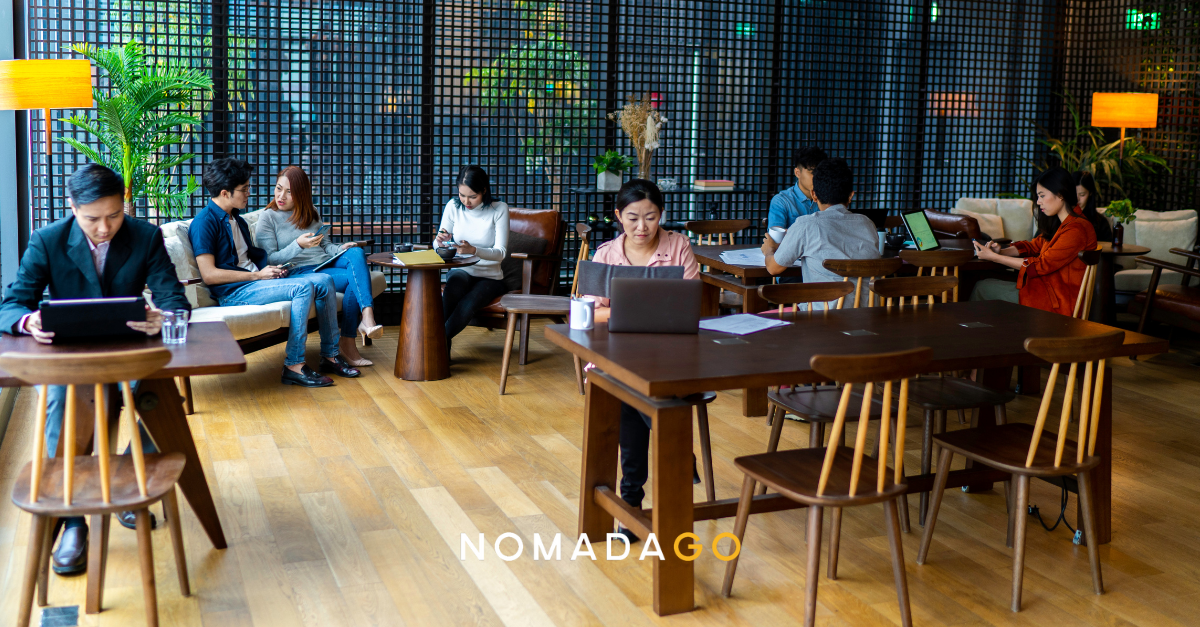In some cities, coworking spaces are everywhere, offering everything from rooftop patios to fitness centers. In others, they’re almost impossible to find, and even when you do, the quality can feel hit-or-miss.
But when you find a good one, that's where the real magic happens. A great cowork is more than just desks and Wi-Fi—it’s a place that supports your work, provides opportunities for connection, and makes you want to come back day after day.
When you’re looking for the right coworking, the question isn’t just “What’s nearby?” but “What’s worth it?” The best coworking spaces meet your professional needs, whether that’s high-speed internet, quiet spaces for focus, or flexible memberships that adapt to your schedule. But they also go further with the extras—things like natural light, prime locations, and a sense of community that transforms a workspace into a place you actually want to spend your time.
Let’s explore what separates the best coworking spaces from the rest and how to find the one that’s right for you.
Benefits of Coworking Spaces
Coworking spaces are a big plus for anyone who’s tired of noisy coffee shops or the isolation of working from home. They strike a balance between the structure of a traditional office space and the freedom remote work offers.
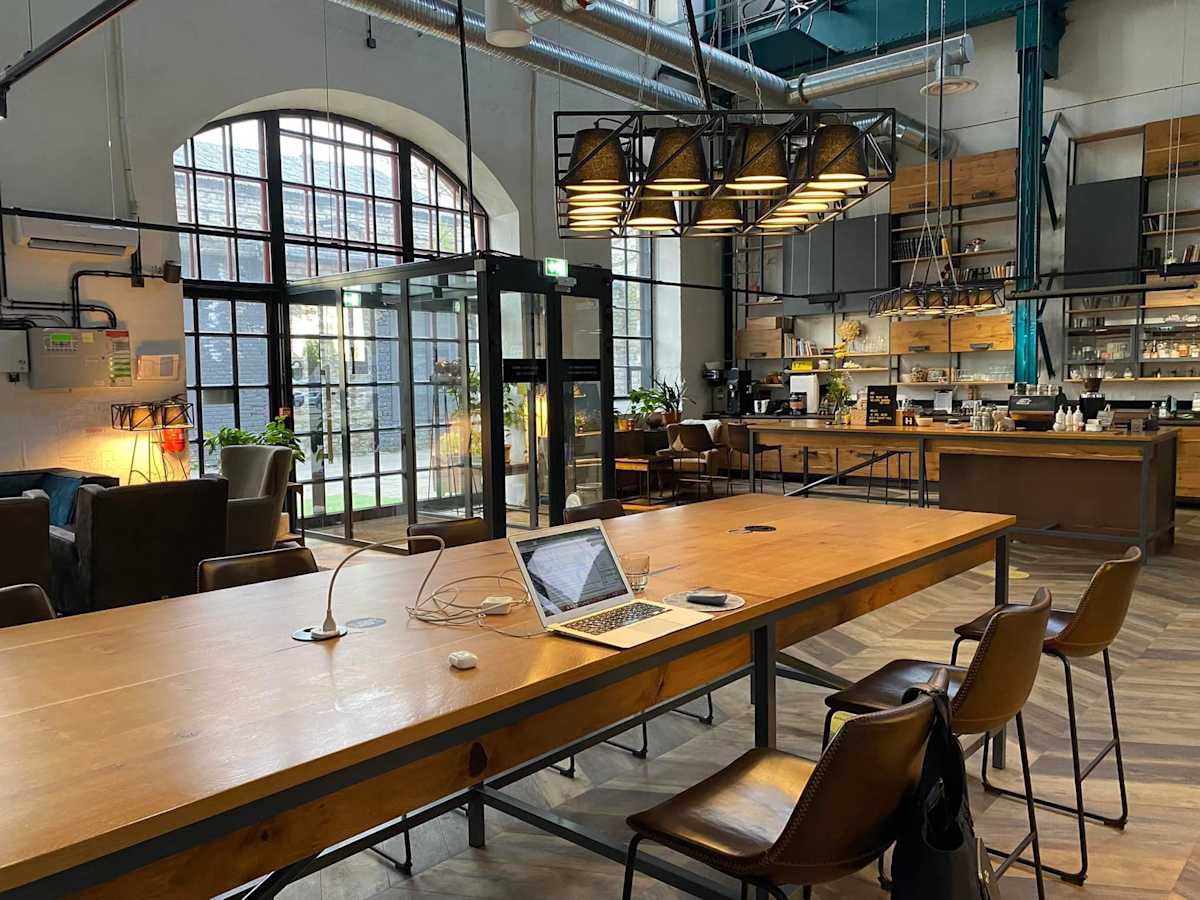
Here are just a few reasons why coworkings are worth the investment:
Dedicated Desks: Have your own workspace without the baggage of a lease while you're in a location for a while.
Workspace Solutions for All: Whether you need private offices, meeting spaces, or just a quiet space to focus, the best coworkings are designed to adapt.
Community Events: Networking with other professionals can lead to collaborations, new clients, and even friendships.
Professional Atmosphere: Unlike a makeshift home office at the hotel or apartment, coworking spaces provide a separate professional space that can help keep you motivated and give you the work-life separation that's crucial for some.
However, not all spaces are created equal.
Recommended reading: How to Become a Digital Nomad: 10 Steps to Work from Anywhere
Why Do Some Coworking Spaces Fail?
Not every coworking lives up to its promise. Some fail to attract members because they overlook key factors like community, usability, and location.
Here are a few reasons why coworkings flop:
Lack of a Sense of Community: A coworking space isn’t just a place to work; it’s a place to connect. Spaces that neglect community-building miss the mark.
Poorly Designed Spaces: If the layout feels cramped, noisy, or doesn’t include enough quiet spaces or private offices, productivity suffers.
Bad Location: A coworking in the middle of nowhere, or without nearby amenities like coffee shops or transit, is doomed from the start.
Inflexible Memberships: Monthly memberships and flexible workspaces are now standard expectations. Spaces that don’t adapt to diverse needs get left behind.
I've seen coworkings fail because they failed to attract remote workers and instead had to rent office space to traditional businesses to cover costs. Once you head down that road, the vision for the collaborative, innovative space is gone and it's hard to get back.
Successful coworking spaces seem to have multiple revenue streams from longer-term rentals and/or memberships, day or week rentals, event space rentals, complementary services like printing and storage, and sometimes food and beverage.
But another coworking I visited a few times that ended up closing down was trying to survive on memberships alone and lacked the amenities to make it worth joining. They didn't even any beverage service or even dishware and regular cleaning; members were encouraged to bring their own mugs and wipe their own desks down. It was just an empty room with desks, and that's not a good vibe.
And of course, there's the most spectacular fair of them all: WeWork. Their business model was flawed from the beginning, they relied too heavily on investors' money, and they tried to scale too fast at the wrong time. These issues aren't unique to coworking and will tank a business in any industry, so I don't see the example of WeWork as a harbinger of doom for coworking spaces in general.
Instead, it’s a lesson in what happens when vision outpaces execution and when scaling comes before sustainability. WeWork’s collapse was less about the coworking model and more about poor financial planning and overreach.
At its core, coworking works—but only if it’s done right. Spaces need to strike a balance between creating a vibrant, supportive environment and maintaining a business model that can stand the test of time. That means diversifying revenue streams, offering the amenities and flexibility remote workers value, and fostering a sense of community that makes members want to stay.
On that note, let's move on to what makes the right space work.
How Do You Define a Great Coworking Space?
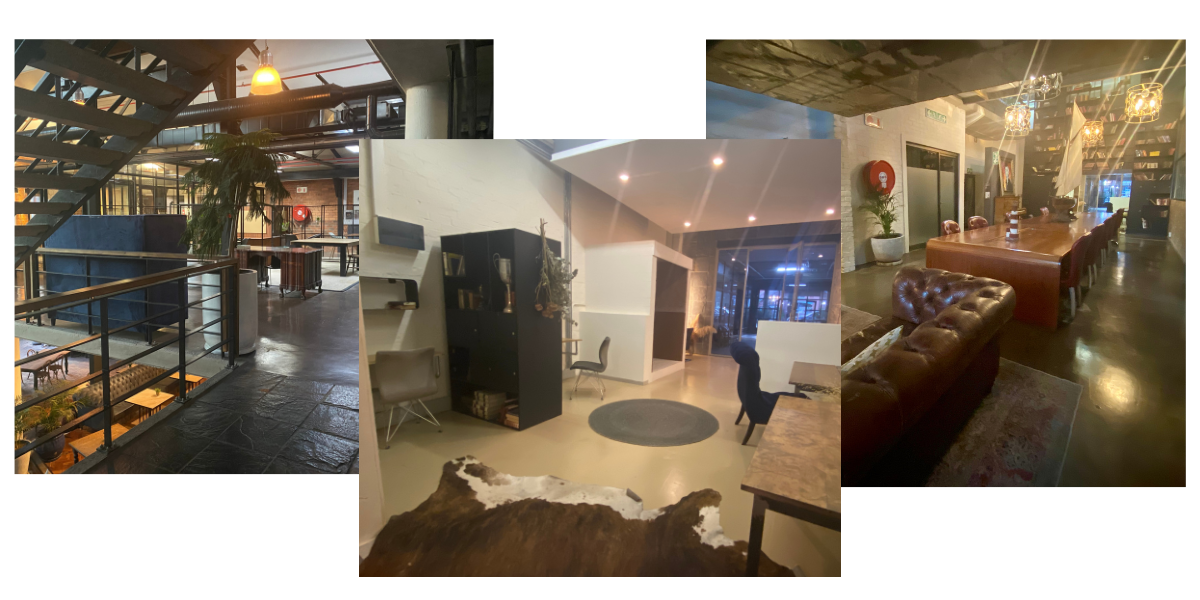
A great coworking space combines functionality, community, and comfort, creating an environment that enables both productivity and connection. While individual preferences vary, the top spaces consistently include these key features:
Prime Location
Convenience matters. Easy access to public transportation, parking, and nearby cafes or restaurants enhances the daily experience and makes the space more appealing for meetings and networking.
Flexible Workspace Options
From dedicated desks to private offices and quiet zones, flexibility is a must. The best spaces offer a range of setups, including communal tables for collaboration and private areas for focused work or calls.
Professional Workspaces
High-speed internet, ergonomic furniture, natural light, and thoughtful design set the tone for productivity. Clean, well-maintained communal areas and attention to detail make a space feel polished and professional.
Community and Networking
A strong sense of community is vital. Networking events, workshops, and casual meetups foster relationships and collaborations that go beyond the workspace. For nomads, this can provide a valuable support system while on the move.
Amenities That Go Beyond the Basics
Coworking spaces that provide additional perks elevate the experience. Coffee stations, outdoor patios, 24/7 access, and fitness centers help balance work with wellness and relaxation. Features like printing services, locker storage, and a stocked kitchen show attention to members’ practical needs.
Quiet and Private Spaces
Not every task fits in a bustling environment. Well-designed quiet zones and private offices cater to those needing focus or confidentiality.
Event Spaces
Multifunctional areas for workshops, professional gatherings, and social events add extra value, fostering community engagement while attracting diverse users.
Sustainability and Values
Coworking spaces that incorporate eco-friendly practices, like energy-efficient lighting and recycling programs, align with the values of environmentally conscious professionals.
Recommended reading: Coliving Spaces for Digital Nomads: Features, Benefits, and Trends
Top Coworking Amenities for Nomads
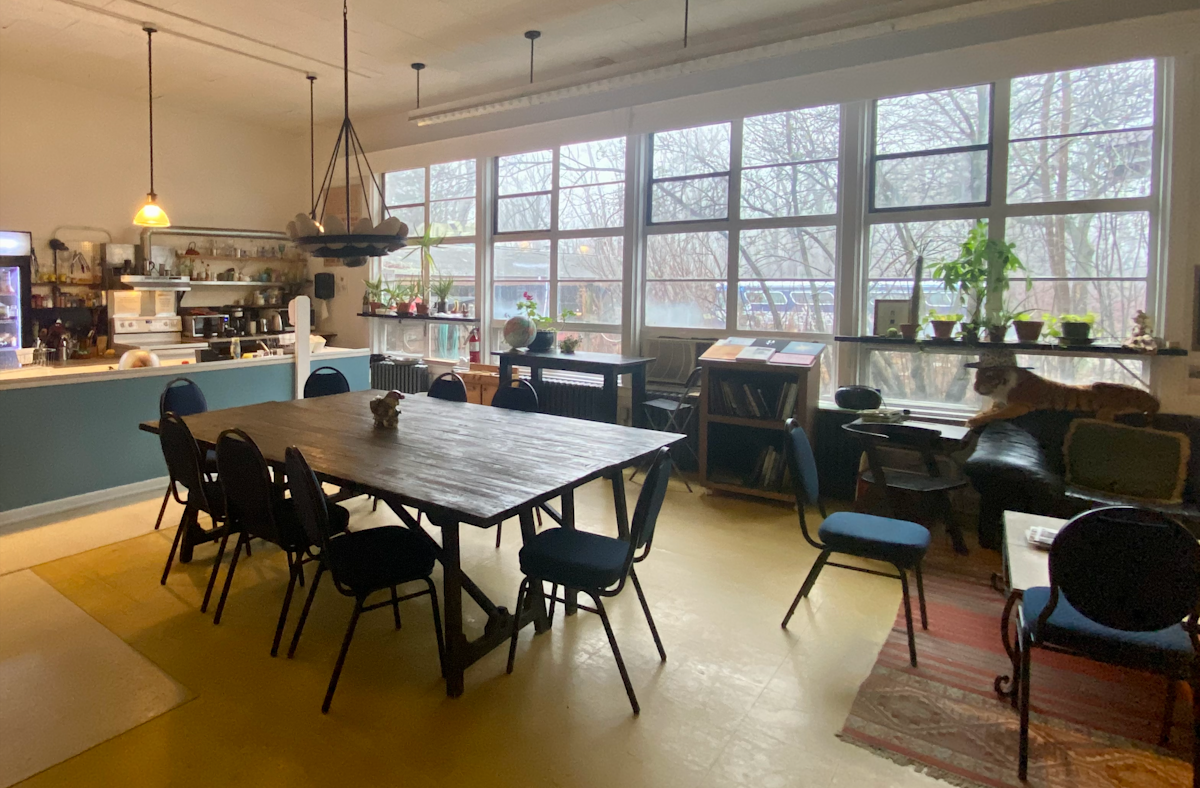
Digital nomads have unique needs, and the right amenities can transform a coworking space into a true home base:
Flexible Memberships: Options like day passes, weekly rates, or customizable plans accommodate the unpredictable schedules of nomadic workers.
High-Quality Wi-Fi: Fast, reliable internet is non-negotiable.
Lockers and Storage: Secure storage for belongings is invaluable for those balancing work and travel.
On-Site or Nearby Accommodation: Some coworking spaces offer coliving or partner with local accommodations, streamlining logistics for nomads.
Community Events: Social opportunities like networking meetups, workshops, or shared meals help nomads connect and feel part of a community.
Cultural Support: Spaces that provide local guides, language classes, or travel assistance help nomads adapt quickly and make the most of their stay.
Coworking Brands vs. Independent Coworking Spaces
When choosing a coworking space, one key decision is whether to go with a well-known coworking brand or an independent, locally run space. Each option has its own strengths and weaknesses, and the right choice ultimately depends on your priorities as a digital nomad.
Coworking Brands
Coworking brands, such as Regus or WeWork (which has been restructured since its bankruptcy), are known for their polished setups and consistent offerings across locations. They’re designed with scalability and professionalism in mind, making them a convenient choice for nomads who value predictability.
Pros:
Consistent Quality: No matter where you are, coworking brands often deliver a similar experience. You know what to expect, from the seating arrangements to the Wi-Fi speed.
Global Networks: Memberships with big brands often come with access to multiple locations worldwide, making it easy to move between cities without hunting for a new space.
Flexibility in Spaces: Most brands offer a range of workspaces, including private offices, meeting rooms, and hot desks, catering to different needs.
Professional Atmosphere: These spaces are often designed to impress, with modern furniture, well-maintained facilities, and a corporate feel.
Cons:
Impersonal Feel: While convenient, coworking brands can lack the charm and warmth of smaller spaces. They sometimes feel more like a traditional office than a collaborative environment.
Higher Costs: The amenities and consistent quality often come with a premium price tag, which might not be ideal for budget-conscious nomads.
Independent Spaces
Locally owned coworking spaces offer a completely different experience, often tailored to the specific community and culture of their location.
Pros:
Unique Atmospheres: Independent spaces often reflect the personality of their city or neighborhood, making them more inspiring and memorable.
Stronger Community Focus: These spaces tend to prioritize building relationships among members, fostering a sense of belonging that’s especially valuable for solo travelers.
Adaptability: Small, owner-operated spaces can be more flexible in accommodating members’ needs, whether that’s rearranging desks or creating customized
membership plans.
Cons:
Limited Locations: Independent spaces don’t have the global reach of coworking brands, so you’ll need to find a new spot in every city.
Fewer Amenities: While many independents punch above their weight in personality, they may lack extras like 24/7 access, fitness centers, or multiple workspace options.
We're seeing players emerge in the middle ground, too, like Impact Hub with its 100+ locally franchised coworking locations. This can provide some consistency and structure while still allowing for local flavour and service.
Top Coworking Cities
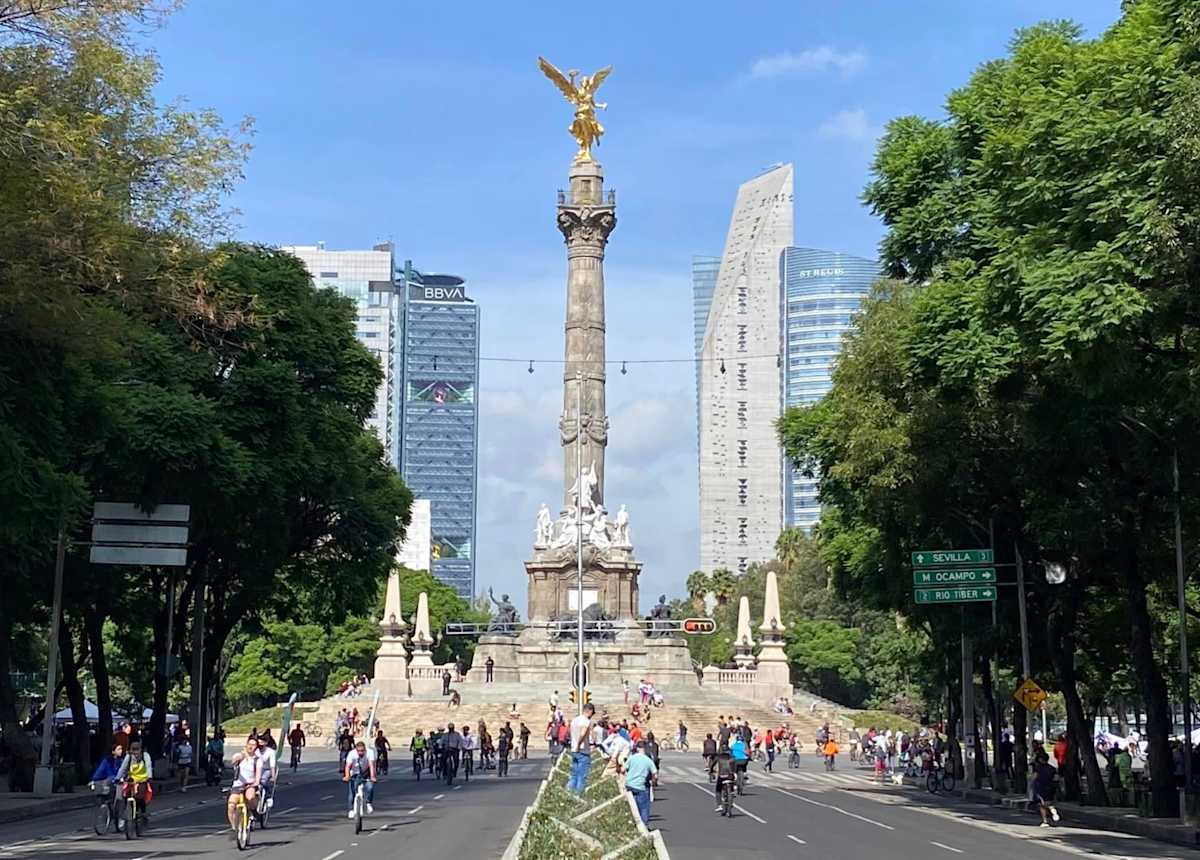
Not every city is equally equipped to support the digital nomad lifestyle, but some stand out as true coworking havens. These cities offer more than just great workspaces—they provide a mix of culture, community, and infrastructure that makes them perfect for remote professionals.
Canggu, Bali
Canggu is a favorite among digital nomads who want to balance work with beachside living. With coworking spaces offering modern amenities and strong community vibes, it’s easy to stay productive. The town’s relaxed atmosphere, great food, and access to nature make it an inspiring place to work and recharge.
Lisbon, Portugal
Lisbon’s mix of creativity, affordability, and sunny weather makes it one of Europe’s top coworking destinations. The city offers a welcoming environment for remote workers, with plenty of vibrant neighborhoods and a growing digital nomad community. Its rich history and lively cultural scene make it easy to fall in love with the city while staying productive.
Mexico City, Mexico
Mexico City is a dynamic hub for freelancers and remote workers. Its coworking spaces cater to diverse needs, from quiet focus areas to social, collaborative environments. The city’s energy, affordable cost of living, and world-class food scene make it a fantastic base for nomads who love urban adventure.
Berlin, Germany
Berlin attracts innovators and creatives from around the globe. Known for its inclusive and open-minded culture, Berlin’s coworking scene is as diverse as the city itself. With a focus on collaboration and affordability compared to other European capitals, it’s an excellent choice for those who want to connect with a global community while getting work done.
Bangkok, Thailand
Bangkok combines affordability with excellent infrastructure, making it an increasingly popular destination for remote workers. Its coworking spaces offer a mix of flexibility and community, perfect for nomads with varying work styles. The city’s vibrant streets, incredible cuisine, and access to travel-friendly locations make it a great place to work and explore.
Final Thoughts
A truly great coworking space is so much more than a desk and an internet connection. It’s a hub where work feels effortless, ideas flow, and meaningful connections are made. Choosing the right coworking space can elevate your nomadic experience, turning any city into a place where you feel at home.
And when it’s time to plan your next stop, Nomadago is your go-to guide. Find coworking spaces with the amenities you need, explore coliving options, and connect with fellow nomads who’ll be in the same destination. With Nomadago, you can focus on what matters most—your work, your travels, and the incredible experiences waiting for you.
You might also like:

